Poor record keeping, welfare fraud: the real ‘secret’ of living to 100 uncovered
Are there parts of the world that offer lessons in how to live to 100? An Australian academic cautions us to beware.
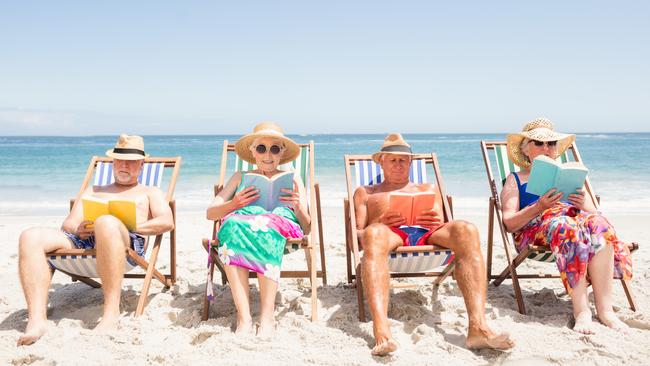
The concept of Blue Zones sounds enticing. Small parts of Italy, Greece, Japan, California and Costa Rica where a combination of diet, lifestyle and belief have led to more people living happily to 100 and beyond than anywhere else in the world.
If the formula could be bottled and Blue Zones replicated, centenarians would be the norm rather than the exception. Living to a ripe old age would need to be recalibrated across the world.
But step forward Australian researcher Saul Newman from Oxford University, whose research has uncovered the real “secret” of living to 100 and beyond – poor record keeping and, in some cases worse, welfare fraud.
Dr Newman says many of those counted among the centenarians in these Blue Zones turned out to be missing or already dead. Blue Zones are little more than bad data, he says.
It’s not surprising that Blue Zones have captured the world’s imagination over the past 20 years through books and a TV series. We’re all looking for the secret sauce for a long and well-lived life – chasing those life hacks that will keep us around for decades hence.
But what are our true chances of living a really long time? Of making those later years of our lives fulfilling and meaningful? Does where you live make any difference? And when exactly is “peak age”?
If there were a guaranteed shortcut to longevity we’d likely already know it. But let’s see what we can uncover about how to live our best lives into a ripe old age.
Blue Zones – for and against
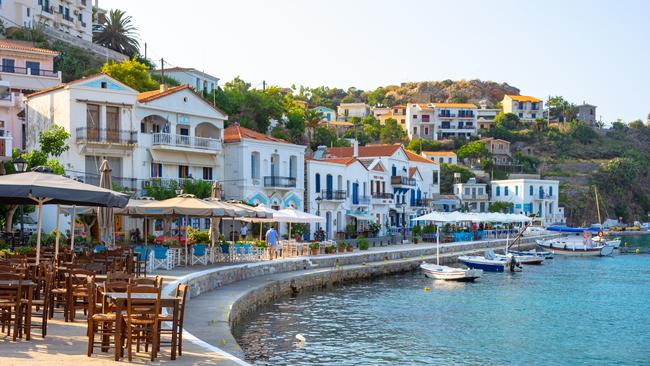
The Blue Zone theory was proposed in 2004 by explorer and journalist Dan Buettner, who saw commonalities between the world’s longest-living populations in places such as Okinawa in Japan, Sardinia in Italy, the island of Ikaria in Greece and Nicoya in Costa Rica. These were the places reporting the most centenarians among their populations.
The nine common factors range from lifestyles that revolved around constant low-impact physical movement such as yard work, having a conscious sense of purpose, undertaking activities to reduce stress such as meditation or rest, a plant-based diet and controlled food intake, moderate alcohol consumption, and adhering to some version of a faith.
There are lessons to be learned for those seeking to make it to 100, Buettner says, the concept spawning numerous books on diet and lifestyle, along with a Netflix series.
Further, the researchers behind the Blue Zone concept now work with individual cities or regions to reproduce the best aspects of these original zones, influencing everything from urban design to food systems and social networks.
Public health outcomes such as a decline in obesity and significant cuts in healthcare costs have been the result, its proponents say.
But Dr Newman, now at Oxford University’s Institute of Population Ageing, has cast a sceptical eye over the science behind Blue Zones. His work led to him receiving an Ignobel Prize this year for exposing flaws in the collection of lifespan data.
“I have discovered that … most 100-year-olds in the Blue Zones were missing or dead when the study was conducted, and the findings are therefore based on bad data,” Dr Newman says. “Later studies discovered that (up to) 82 per cent of centenarians in the Blue Zones were missing through clerical errors or dead.”
He cites Okinawa as an example. “An earlier study that I found … looks at where centenarians are inside Okinawa, and it’s where the Americans bombed the place. So effectively, firebombing is a predictor of reaching 100 so that if you’ve bombed a town and destroyed all the birth certificates … that’s where the 100-year-olds are within Okinawa,” he says.
Some of it is down to welfare fraud.
“Greece was dominated by welfare fraud. A very simple way this happens is that if your father or neighbour dies, you don’t register the death, and the pension cheque will keep turning up in perpetuity,” Dr Newman says.
“Now, everybody sort of knows this in certain parts of Greece, and they accept that you can just bribe a public official to register a death late, or they just don’t do it.
“It turned out that 72 per cent of centenarians in Greece, at least, were dead, but collecting their pensions.”
The lack of rigour around Blue Zones extends to their supposed common features, including diet, when pitted against independent data. There are myriad examples, including Okinawa.
“One of them was that people are 90 to 95 per cent vegetarian, yet (Okinawans) rank dead last in vegetable consumption in the country,” Dr Newman says.
Just exactly how long can we expect to live?
Blue Zones or not, the rate of acceleration in life expectancy during the 20th century is almost hard to fathom. A study published in Nature Aging in October found that across nine so-called long-lived populations, including Australia, improvements in public health and medicine led to increases in human life expectancy of an astonishing three years per decade.
According to the latest Australian Bureau of Statistics data, a boy born in Australia today is expected to live to 81.1 years, and a girl to 85.1 years.
This puts us equal fourth overall in the developed world behind only Japan, Switzerland and South Korea. Interestingly, this gap between male and female life expectancy is among the smallest of all developed nations.
Comparing this to just a generation or two ago is almost bewildering. A boy born in Australia in 1970 was expected to live to 68. For a girl it was 74.5 years.
The Nature Aging study led by University of Illinois epidemiology professor S. Jay Olshansky asks if this “radical extension” phase of life expectancy can continue, noting at least some of the scientific forecasts from the 1990s suggested most children born in the 21st century would live to 100 or older.
The answer, according to the paper, is a resounding no. Without some extraordinary future medical breakthrough we are approaching “peak age”, it concludes. Mortality data between 1990 and 2019 from these high life expectancy countries – which also includes Japan, South Korea, France and Italy – finds a significant deceleration in the life expectancy trajectory, and indeed in the US it has declined.
If the improvement in old-age mortality continues for the next 30 years at the same rate it has in the past three decades, the average lifespan would increase by just 2.5 years in these countries.
The study also notes that far from the majority of those born in the 21st century making it to 100, the numbers are expected to remain small, especially for those born after 2010. Across those countries, girls born in recent years have a 5.3 per cent chance of reaching the century, and for boys it is just 1.8 per cent.
“Humanity’s battle for a long life has largely been accomplished,” the article notes, adding: “This is not a pessimistic view – rather it is a celebration of more than a century of public health and medicine successfully allowing humanity to gain the upper hand on the causes of death that have, thus far, limited human lifespan.”
Blue Zone-lite
There may be doubt about the Blue Zones themselves, but the message about how to age well through a careful diet, access to community and finding purpose creates a useful template for living longer, and better.
So much so that author and longevity expert Marcus Pearce says they can be created, citing retirement villages as potential mini-Blue Zones.
“Australia’s first Blue Zone won’t be Byron Bay or Bondi, it will be a retirement village … where residents defy the ageing stereotype by being physically active, socially active, and waking up each day with a compelling to-do list that gives them great purpose,” Mr Pearce told the recent National Retirement Living Summit.
“Retirement villages are perfectly placed to actually have the “Blue Zone” lifestyle. This industry can incorporate so many of the (healthy) benefits, which will lead to greater consumer confidence and an incredible quality of life for the duration of their stay.”
Mr Pearce says the secret to longevity is that “there’s not just one secret”.
“You’ve got to have a compelling reason to get out of bed each day, you’ve got to be physically active, and you’ve got to be socially active. You can’t just have one or two of them.”
If not Blue Zones, does where we live make a difference to ageing well?
There are quite wide disparities in life expectancy depending on where in Australia we live. If you live in Baulkham Hills in Sydney your life expectancy at birth is 86.6, compared to 80.8 in New England.
Residents of Melbourne’s Inner East have a life expectancy at birth of 86.2, while for those in Gippsland it is 80.6.
Unsurprisingly, the outback Northern Territory is the region with the nation’s lowest average life expectancy, at 73.6 years.
Tracy Comans, director of the National Ageing Research Institute, says regional and remote Australians have some significant hurdles to overcome in order to live well and to a ripe old age.
“It’s the more limited access to health and care services for a start,” the health economist says.
“If people have to go to the city for high-level treatment, this involves cost and complication that is an impediment to life expectancy.
“Beyond that, there are higher levels of obesity in the bush, which is caused by a combination of limited educational opportunities and a lack of access to high-quality, fresh, affordable food.
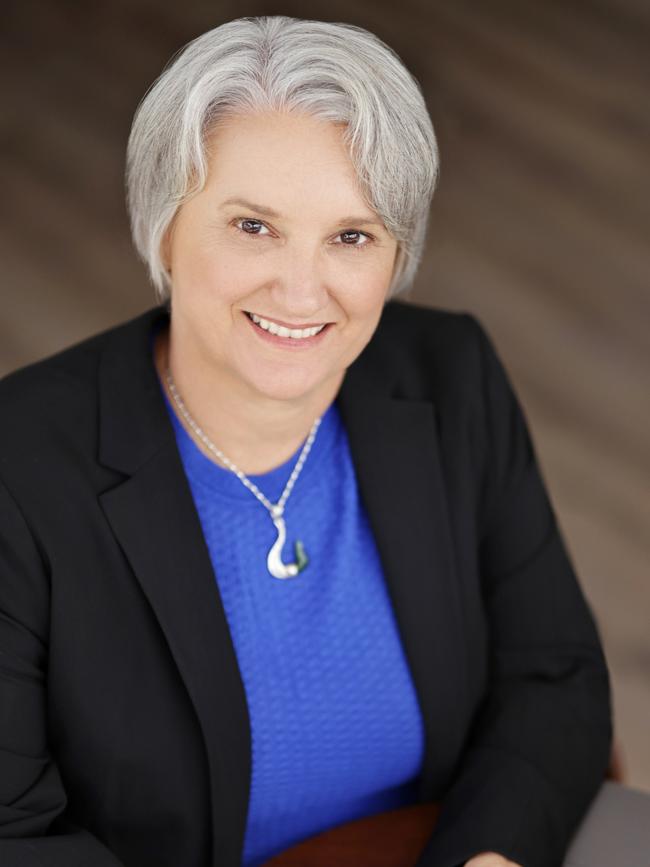
“And the distances mean that once people reach an age where it is difficult to travel, either through not being able to drive any more or a lack of public transport, they are more likely to miss out on social connection and support which is really important to living longer and better,” Professor Comans says.
“Loneliness is a big killer, but we don’t often think about that when we think of risk factors in ageing.”
University of Canberra School of Politics, Economics and Society professor Riyana Miranti agrees that connection with society is crucial to age well.
“If older people feel they are still able to contribute in some way, either through paid or unpaid work or volunteering, that is vital to their wellbeing. And this can be harder where there is limited access to transport, the internet, and health and community services,” she says.
But getting older in the city is no picnic either, Professor Miranti says.
“Education stratification, sources of retirement income, and participation rates are issues for older people in inner cities including parts of Sydney and Melbourne. Not to mention housing stress. Many older people experience multiple factors that contribute to low wellbeing.”
Professors Comans and Miranti both say lifespan increases have meant more people are keener to stay in paid work longer, with all the health and wellbeing benefits that brings. Financial security, connection, sense of purpose. Tick, tick, tick.
“There’s this legacy thing of retiring at 65 that still seems to be present in Australian society, despite the rapid rise in life expectancy,” Professor Comans says.
“These people have lots of skills, so it becomes a question of how we can support them to stay in the workforce longer, or re-skill them to do other things in the community if their previous job doesn’t suit the limitations of ageing.
“Over the next 20 years we’ll have so many people like this, including me. I don’t want to be put on the shelf.”
At what age do we ‘peak’?
Australians are an optimistic bunch. Three in five Australians aged 50 and over feel they are yet to hit their prime, a survey of 5000 people aged 50+ published in June found.
The Australian Seniors survey also calculates that 51 is the average “peak age”, the age at which those surveyed feel they hit their prime.
For those in their 50s, the average prime age was 44 years, 53 for 60-somethings and 59 for those aged 70+, the survey reveals.
And one in five 70-somethings say their current decade is their happiest, with almost half reporting their best times came post-50. Factors include greater wisdom and life experience peaking later in life.
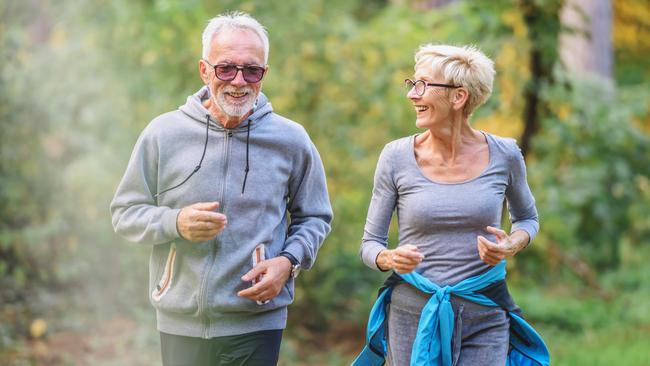
“For many of us, discovering unexpected joys in simple pleasures (61 per cent) and developing a greater appreciation for living in the moment (56 per cent) play an important and satisfying role in our journey towards ageing,” the Gen Seen Report 2024 says.
“We also find meaning in travelling and exploring new places (51 per cent), building stronger relationships with our friends and family (46 per cent), taking care of our physical and mental health (44 per cent), and reflecting on our personal growth and our past experiences (38 per cent).”
If you’re still in a couple, there’s new evidence that leaning on each other to cope with the setbacks of ageing can be an emotional benefit. The Australian-first study published in The Journal of Rheumatology in October looks at couples who both suffer from rheumatoid arthritis, finding those who cope with their problems together had less psychological distress and better relationships.
“Dyadic coping, the process of coping that transpires between couples challenged by one partner’s illness, is an important predictor of disease adjustment and patient wellbeing,” says lead author Dr Manasi Murthy Mittinty from the College of Medicine and Public Health.
“Dyadic coping contributes to a sense of togetherness, encouraging couples to develop strategies as a unit to respond to stressful events, and it represents a protective factor for minimising the risk of divorce.
“Working together as a couple is crucial for managing the challenges they face when one partner has an illness, particularly in rheumatoid arthritis.”
The secret sauce?
There may be a barney over the efficacy of Blue Zones, but the themes behind them no doubt hold true. Being healthy at any age, including old age, involves regular exercise, a balanced diet, a lack of stress, a reason to get up in the morning, and maintaining human connection.
The Gen Seen Report nominates being mentally content, eating right, exercising, looking forward rather than back, and staying socially connected as its top five secrets to ageing well.
Dr Newman is a little more blunt.
“It’s very simple. You can’t do much about being born rich, but that’s the most important factor. And apart from that, health is very simple if you don’t have some sort of exotic disease or drug addiction. Just do some exercise. Don’t drink. Don’t smoke. And if you have any doubts, talk to your GP.
“That’s it. If you’re doing those things, you’ll live much longer. It’s very, very simple.”


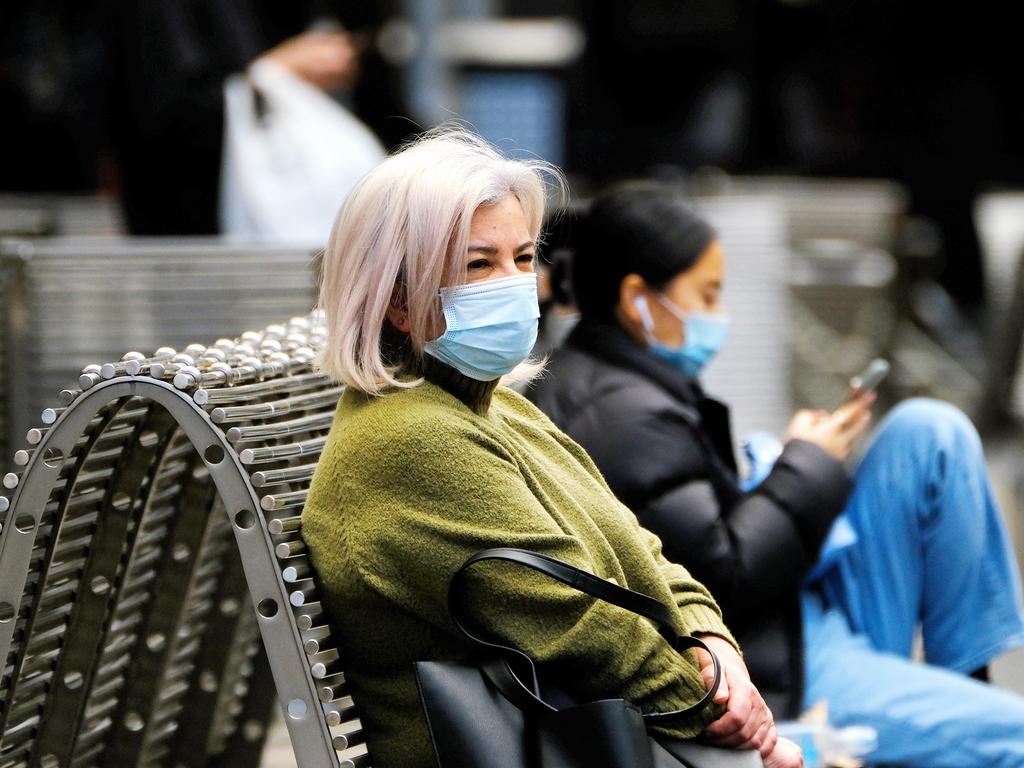
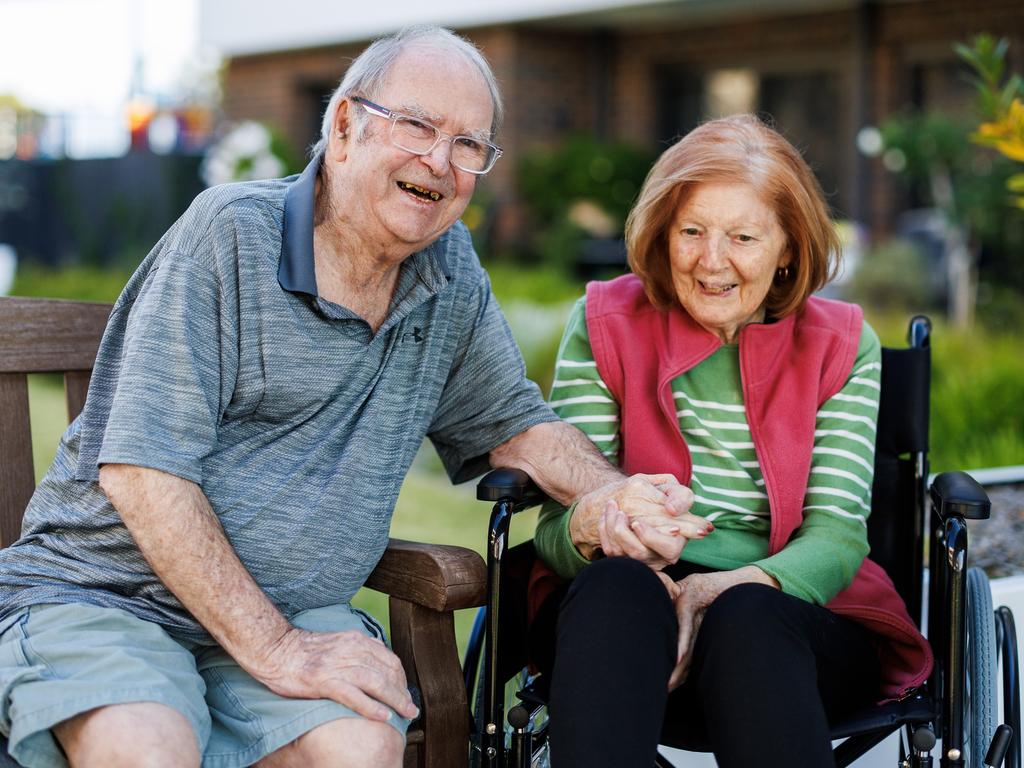

To join the conversation, please log in. Don't have an account? Register
Join the conversation, you are commenting as Logout